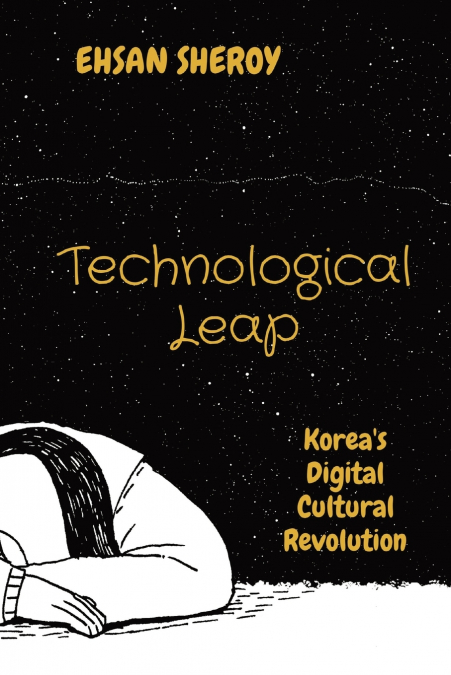
 Librería Perelló (Valencia)
Librería Perelló (Valencia)
 Librería Aciertas (Toledo)
Librería Aciertas (Toledo)
 Librería Elías (Asturias)
Librería Elías (Asturias)
 Donde los libros
Donde los libros
 El AlmaZen del Alquimista (Sevilla)
El AlmaZen del Alquimista (Sevilla)
 Librería Kolima (Madrid)
Librería Kolima (Madrid)
 Librería Proteo (Málaga)
Librería Proteo (Málaga)
Over the course of the last few decades, South Korea has witnessed a remarkable change in terms of technological innovation and cultural influence. It has evolved from a nation that was torn apart by war to a worldwide powerhouse that is at the forefront of the digital revolution. The book 'Technological Leap: Korea’s Digital Cultural Revolution' offers a perceptive investigation into the complex relationship that exists between technology and culture. It reveals the diverse journey that led to Korea’s transition into the digital era.The introductory chapter establishes the stage by describing the historical setting of Korea’s ascent to prominence. It sheds light on the difficult journey that the nation navigated from the devastation of war to becoming a beacon of scientific excellence. It is now clear that the digital revolution in Korea has had a significant impact on the country’s cultural landscape, which lays the groundwork for a more in-depth investigation.The second chapter goes into the fundamentals of the digital wave, providing a detailed account of the early developments that established the platform for Korea’s rise to the forefront of technological advancement. To provide a more nuanced view of the strategic measures that propelled Korea’s technological leap, this article examines government efforts and regulations that are geared at stimulating innovation in industries such as electronics and semiconductors.In the third chapter, titled 'Internet and Connectivity,' the narrative of Korea’s rapid adoption of the internet and the widespread dissemination of high-speed broadband is dissected. The way in which Koreans engaged with technology and with one another underwent a paradigm shift as a result of this transformation, which altered communication, entertainment, and lifestyle.The topic of 'Gaming Culture and E-Sports' is the primary focus of the fourth chapter, which sheds light on South Korea’s rise to prominence as a global gaming hub. In this chapter, we investigate the emergence of competitive gaming and e-sports, shedding light on the significant impact that gaming has had on the culture of young people in Korea, as well as the following impact that gaming has had on the gaming community around the world.'K-Culture Goes Digital: K-Dramas and K-Pop,' which is the title of the fifth chapter, delves at the impact that technology has had in propelling Korean entertainment onto the international arena.It is the proliferation of internet streaming platforms and the pervasiveness of social media that have been instrumental in the global dissemination of Korean dramas and Korean pop music. These developments have also contributed to the development of thriving fan communities and have reshaped the landscape of popular culture.In the sixth chapter, titled 'Technological Innovations in Film and Animation,' the development of Korean animation and film is discussed in detail. This chapter examines the ways in which technology has driven Korean narrative into the world cinematic stage. Topics covered include technological breakthroughs in filmmaking, national acknowledgment of Korean films and animation content, and international awareness of Korean filmsThe final chapter of the book is titled 'Digital Economy and Future Prospects,' and it is here that the book investigates the economic impact that the digital cultural revolution in Korea has had. In addition to providing a forward-looking view on Korea’s place in the ever-evolving global digital landscape, it digs into the blooming culture of start-ups and technical advancements.